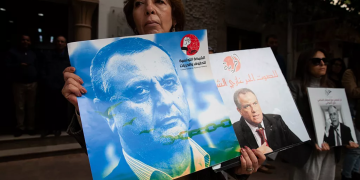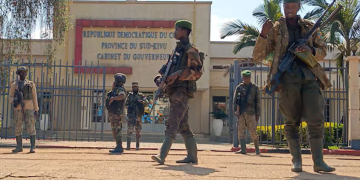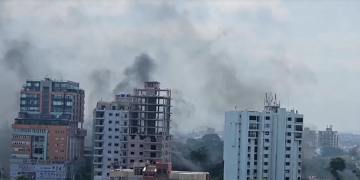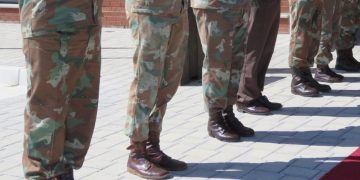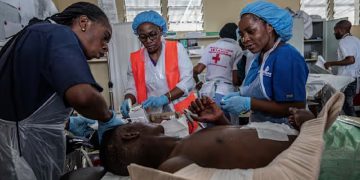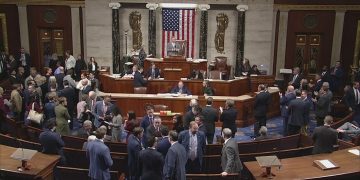In a significant development for Central African politics, the ruling party of President Faustin-Archange Touadéra, the United Hearts Movement (MCU), has formalized a cooperation agreement with United Russia, the political party led by President Vladimir Putin.
This agreement, signed remotely on January 20, 2025, marks a deepening partnership between Bangui and Moscow.
A Strategic Partnership
The announcement came shortly after President Touadéra’s three-day official visit to Russia, where he engaged in discussions aimed at enhancing bilateral relations.
Representing United Russia was Andrei Klimov, a prominent member of the party and a senator currently under Western sanctions due to his support for the invasion of Ukraine.
On the Central African side, Simplice Mathieu Sarandji, a close ally of Touadéra and the president of the National Assembly, signed the agreement while draped in a ceremonial scarf featuring the president’s image.
The signing ceremony was attended by key Russian officials, including Ambassador Alexandre Bikantov and Dimitri Sityi, who oversees operations for the Wagner Group in the region.
The Russian Embassy described this agreement as a step towards exploring “new horizons” in cooperation, focusing on joint projects and legislative exchanges.
Timing and Political Implications
The timing of this agreement is noteworthy as it follows President Touadéra’s visit to Moscow and coincides with the mobilization of his political supporters ahead of upcoming presidential elections later this year.
Critics, however, have raised alarms about the implications of this partnership. Opposition leader Crépin Mboli-Goumba voiced concerns that the MCU aims to emulate United Russia’s model—characterized by its expansive control over state institutions and suppression of dissent.
The Growing Influence of Russia in CAR
This partnership underscores the increasingly close relationship between the Central African Republic (CAR) and Russia, which has been expanding its influence in Africa through military support and economic partnerships.
Since 2017, Russia has positioned itself as a key player in CAR’s security landscape, providing military aid, training, and personnel to combat threats from rebel groups and terrorism.
The cooperation agreement is expected to facilitate further military-technical collaboration, including arms supplies and training for CAR forces. Analysts speculate that this could pave the way for a permanent Russian military presence in the country.
Economic Aspirations
Beyond military cooperation, both nations are keen to explore economic opportunities. The agreement may lead to increased trade relations, particularly in natural resources like gold and diamonds, which are abundant in CAR.
President Touadéra has expressed interest in attracting Russian investments in agriculture and mining sectors to bolster economic development.
Navigating New Alliances
As the Central African Republic deepens its ties with Russia, questions arise regarding its implications for national sovereignty and governance.
The partnership may offer immediate benefits in terms of security and economic support; however, it also raises concerns about potential authoritarianism modelled after Russia’s political system.
As CAR approaches its presidential elections amidst growing unrest and opposition scrutiny, how this evolving relationship will shape the future political landscape remains uncertain.
The world watches closely as Bangui navigates its new alliances while balancing internal challenges and external influences.





